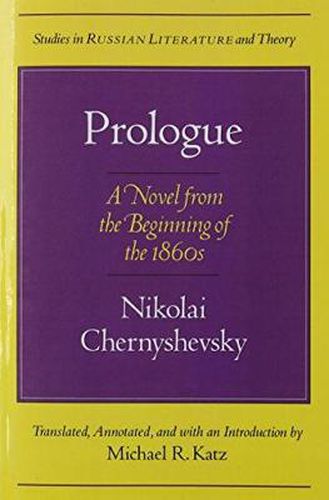Readings Newsletter
Become a Readings Member to make your shopping experience even easier.
Sign in or sign up for free!
You’re not far away from qualifying for FREE standard shipping within Australia
You’ve qualified for FREE standard shipping within Australia
The cart is loading…






Nikolai Chernyshevsky (1828-89) is most famous as the author of What is To Be Done? (1863), one of the most inspirational texts in the Russian revolutionary movement. But during his long and lonely Siberian exile Chernyshevsky wrote Prologue, an novel of extraordinary interest for anyone eager to understand the course of Russian history and the political debate over democratization taking place in Russia today. Set in Petersburg in 1857, on the eve of the great reforms that would include the emancipation of the serfs, Prologue expresses the author’s hostility toward Russian liberals, their halfhearted attempts to alleviate the sufferings of peasants, and their insufficient support of revolution, while also exploring the obstacles in the path of women’s social and personal development in the Victorian era. Michael R. Katz’s new translation makes this singular work available to the non-Russian reading public for the first time.
$9.00 standard shipping within Australia
FREE standard shipping within Australia for orders over $100.00
Express & International shipping calculated at checkout
Nikolai Chernyshevsky (1828-89) is most famous as the author of What is To Be Done? (1863), one of the most inspirational texts in the Russian revolutionary movement. But during his long and lonely Siberian exile Chernyshevsky wrote Prologue, an novel of extraordinary interest for anyone eager to understand the course of Russian history and the political debate over democratization taking place in Russia today. Set in Petersburg in 1857, on the eve of the great reforms that would include the emancipation of the serfs, Prologue expresses the author’s hostility toward Russian liberals, their halfhearted attempts to alleviate the sufferings of peasants, and their insufficient support of revolution, while also exploring the obstacles in the path of women’s social and personal development in the Victorian era. Michael R. Katz’s new translation makes this singular work available to the non-Russian reading public for the first time.